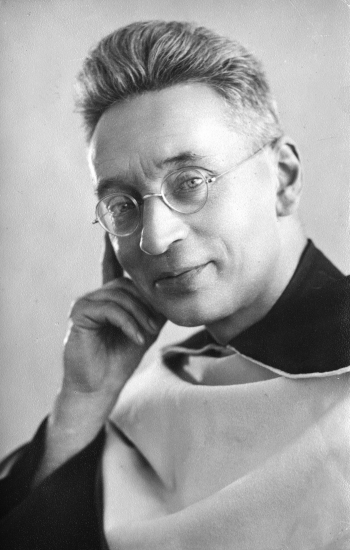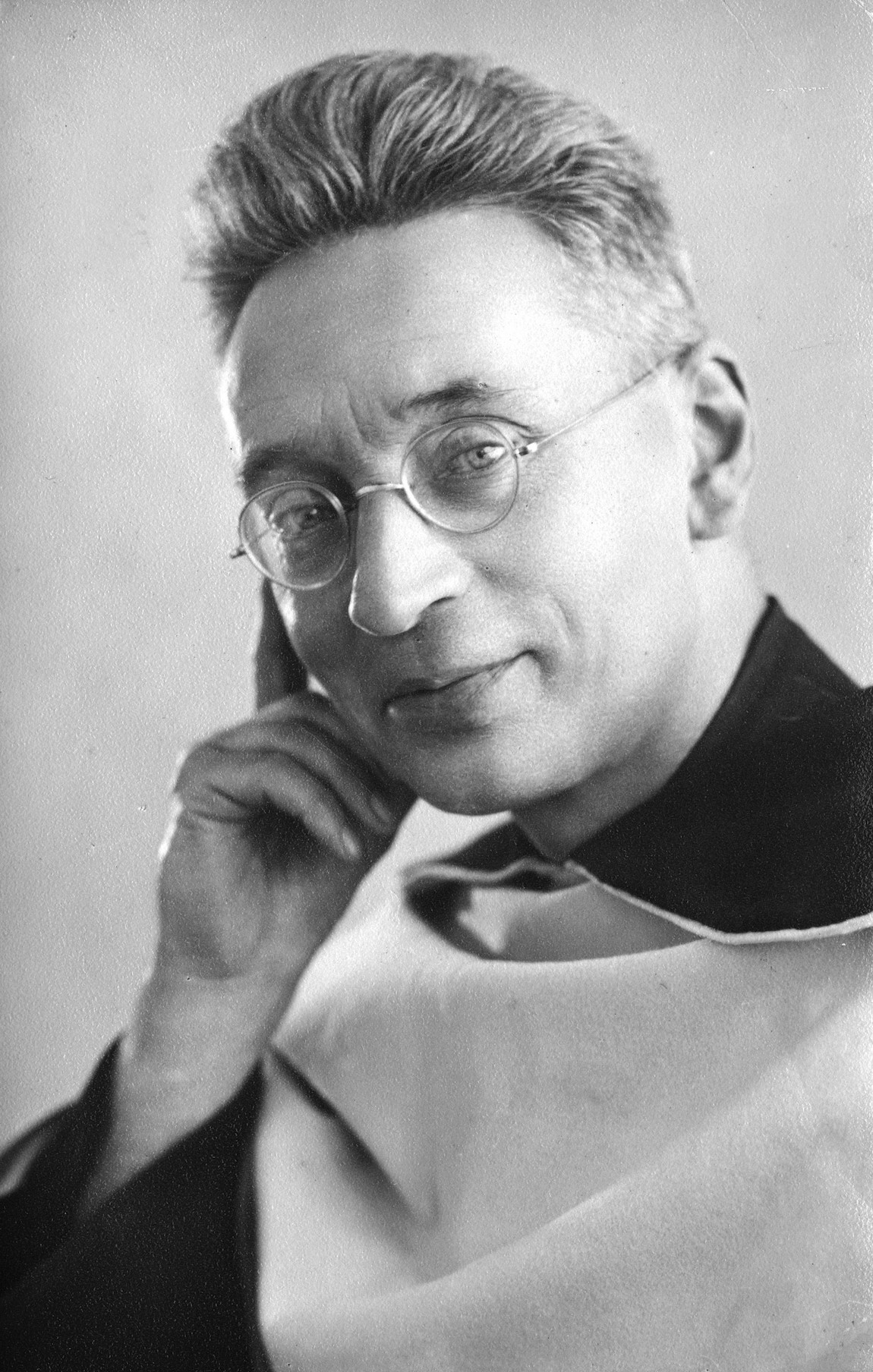
.jpg) Ignatius Gonsalves
Ignatius Gonsalves

My Tryst with Titus Brandsma began way back in 1985. Pope John Paul the Second had beatified him on November 3. Yet I had not heard about him. Surely, I was not alone! But today I join the chorus of journalists world over, imploring Pope Francis to declare him Patron of journalists. We have St. Francis Sales as Patron for journalists and writers. Nothing wrong in having one more as we have St. Francis Xavier and St. Teresa of Liseux as Patrons of the Missions.
Brandsma’s name popped up by chance during a chat with Anna Granda, my journalist-friend, at her residence in Munich, Germany. It was late November 1985. She even ‘dared’ to take me to the infamous Dachau concentration camp where he was martyred on 26 July 1942.
Indeed, it was a daring act from her part as “no German would normally encourage anyone to visit a concentration camp as they are haunting witnesses of our horrendous crimes against humanity.” But Anna was an activist Christian journalist who believed that it is “Truth that sets us free”.
Incidentally, all Nazi concentration camps have welcome arches where it is inscribed: “Arbeit Macht Frei”, meaning ‘work sets you free’. But it didn’t simply happen. The cruel irony was that it led the inmates to death.
One of the disturbing images that got deeply etched in my mind during my college days was the one showing a group of German Bishops offering the Nazi style salute to Adolf Hitler. No wonder, I had succumbed to the propaganda engineered by the erstwhile Soviet empire that “the Church was silent, submissive and totally passive”. Other anti-Church vested interests too had made good use of the above-mentioned photograph, mainly among the youth.
Then came ‘the great John Paul era’. The youth began to flock back to the Church. Global Youth Festivals attended by the Pope began creating world records in terms of the number of participants. Pontifical Council for Social Communication was established with a professional journalist-turned Archbishop John P. Foley (later Cardinal) at the helm. Young Journalists were encouraged and welcomed. John Paul, now a Saint, repeatedly exhorted the world, especially the youth: “Do not be afraid.” The rest is history. Anna and I belonged to that era.
The crash of Soviet empire, the Vatican opening its post-1939 closed archives, and Pope John Paul encouraging research on martyrs of the Nazi-Fascist era, have busted several myths regarding the Church’s involvement or non-involvement. Remember, Pope John Paul’s apostolic letter “Tertio Millennio Adveniente” compares wartime martyrs like Titus Brandsma to the martyrs of the early Church.
This is the setting of my first visit to the Dachau. The exhibits inside the camp depicted horrors beyond words. Coming out, my first urge was to make a confession which I did. How could humans be so cruel to other humans! As a human I felt guilty. I have made pilgrimages to the Dachau concentration camp four more times, learning a lot about Titus Brandsma and other martyrs and the heroic witness and resistance of countless others against an intrinsically evil ideology.
Half of Poland’s Catholic priests, monks and nuns suffered repression during the six years of World War II, with more than 2,800 killed by Nazi and Soviet hands. Of the clergy of all denominations incarcerated at Dachau camp, 1,773 were priests from Poland of whom 868 were killed. There were priests and religious from other nations including Germans.
Catholic clergy of various nationalities who died as martyrs in other concentration camps include St. Maximillian Kolbe and St. Edith Stein. An Italian Catholic from Savona, Blessed Tersa Bracco, was killed resisting rape by a Nazi soldier. Blessed Emilian Kovteh died at the Majdanek concentration camp and was one of the 21 Ukrenians beatified as martyrs in 2001.
Blessed Sara Salkahazi who founded Hungary’s Catholic Women’s League was shot and tossed into river Danube in December 1944. Her crime: sheltering Jewish women and children in her Budapest convent. Other beatified martyrs include 11 Polish nuns shot by the Gestapo at Navahrudak, in the present day Belarus, in Aug 1943 after the nuns volunteered to die in place of local villagers.
Though they didn’t die as martyrs, the heroic resistance and witness offered by Blessed Rupert Mayer, a German Jesuit; Blessed Clemens von Gallen, then Bishop of Munster; and Cardinal Michael von Faulhaber, then Archbishop of Munich, deserve special mention. Not all German Bishops shouted hail Hitler!
The life and witness of Titus Brandsma and his canonization have special relevance to Journalism, particularly for Journalists in India. His life and holiness challenge us on four counts.
1. As a journalist he was fearless and dared to take a position. He was the editor of a local newspaper and the ecclesiastical advisor to Catholic journalists working in about 30 Dutch newspapers. He spoke out when everyone else was diplomatic.
2. His insistence on authenticity and academic depth. In addition to his journalistic work, Titus Brandsma was an academic. He taught in several universities in the Netherlands and translated the works of St. Theresa of Avila, a mystic and Doctor of the Church. He was co-founder of the University of Nijmeger (now Radboud University) where he taught and later served as Rector Magnificus.
3. He was a hardcore professional who always upgraded his skills so that he could be of better use for the Church and the society at large. It was Brandsma who drafted the much-hailed pastoral letter of the then Dutch Bishops Conference, condemning anti-Semitism. The Bishops’ Conference in that letter contrasted Catholicism and Nazism, showing how the two ideologies were incompatible.
4. He not only fought evil tooth and nail but also inspired and encouraged others to emulate him. He was arrested and transported to Dachau for trying to persuade other Dutch Catholic newspapers not to print Nazi propaganda.
Brandsma was a hero until the last. He had no complaints. He was executed by a lethal injection. He forgave the nurse who administered it and gave her a rosary as a parting gift. Though not a believer at that time, she later became a Catholic.
( Ignatius Gonsalves is a recipient of the Titus Brandsma Award and the President of the Indian Catholic Press Association)